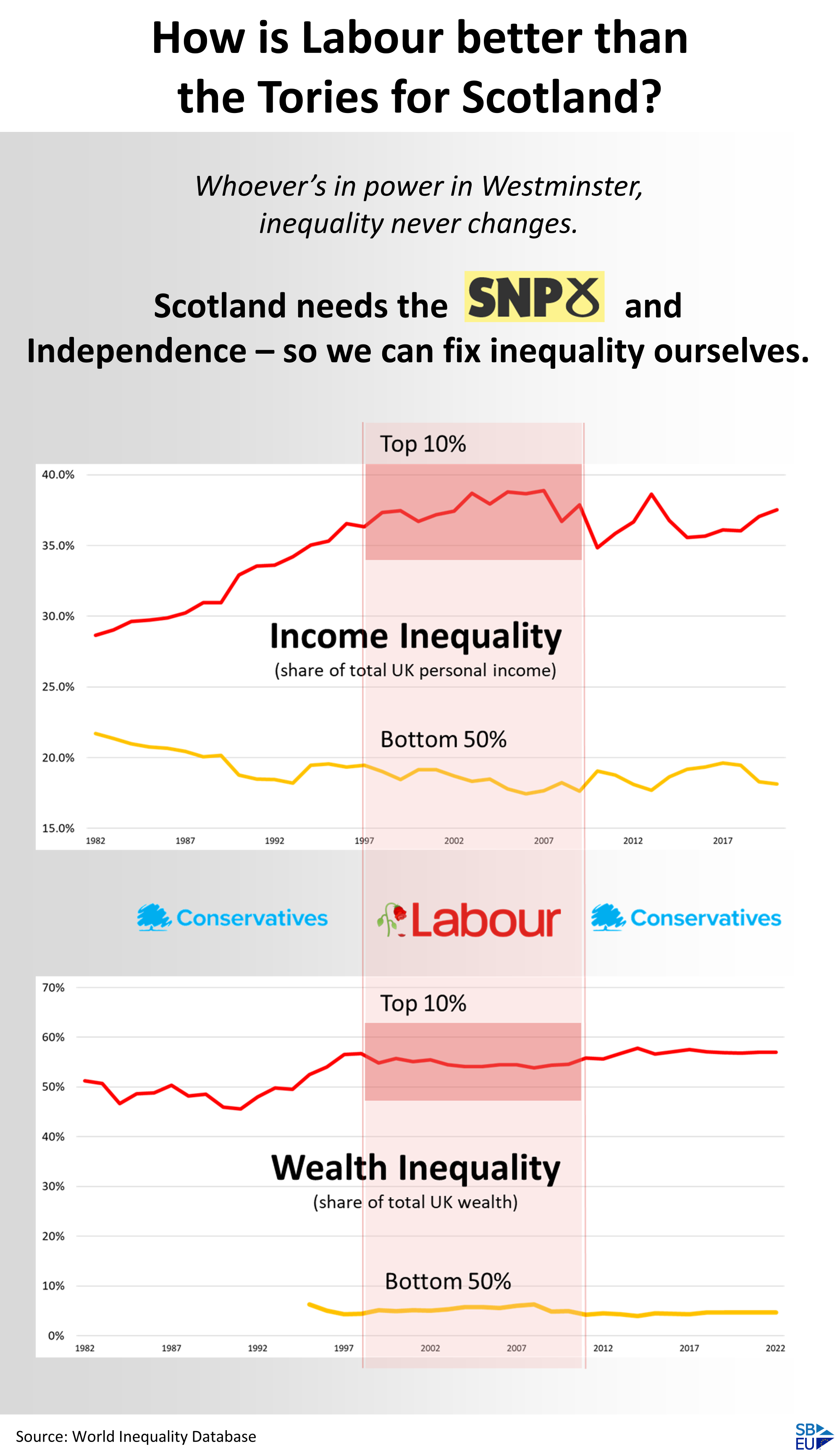Whoever’s taking their turn at power in Westminster, whether Labour or the Tories, inequality never changes. That’s why Scotland needs to regain independence – so we can fix inequality ourselves.
Income inequality
Income inequality is the share of total UK personal income that everyone gets – and how this share is spread. Over the past fourty years income inequality has vastly increased in the UK. The top 10% of high earners have seen their income increase substantially, nearing a 40% of all income. Whilst the bottom 50% with less than 20% of income have seen this share fall.
This trend has continued – whichever Westminster party has been in power. Whilst Labour portrays itself as a progressive socialist party, it has done nothing to impact income inequality.
The visual “Labour and the the Tories will never address income inequality” looks at the potential reasons for this, and also compares Labour’s performance unfavourably with other left-leaning parties in Europe. Governments in other countries have significantly reduced income inequality.
It’s clear that the main reason Labour hasn’t fixed this is because of the Westminster first past the post voting system. In this system a small number of swing voters can affect the result in a constituency – and all votes for losing parties don’t count. Even worse, in the UK it is English constituencies that hold the balance of power. Therefore Labour must attract those mostly right wing swing voters in England to gain power in the UK. It can’t afford to implement really progressive policies as it will risk never getting re-elected.
In the rest of Europe Proportional Representation is used for elections. This means every vote counts, and extreme swings in power between right and left and rare. Progressive policies are not the disaster for a socialist party that they would be in the UK.
Wealth inequality
A similar picture is obvious for wealth inequality as we see for income inequality: increasing inequality, unaffected by Westminster party in power.
But wealth inequality is even worse – the top 10% have a much larger share of the UK’s wealth at a little under 60% of total UK welath, compared with the 5% or so held by 50% of people who are least wealthy. What’s more, wealth is taxed much more lightly than income – so that wealth contributes little benefit to society as a whole and the public services governments deliver.
Sources
https://wid.world

Leave a Reply